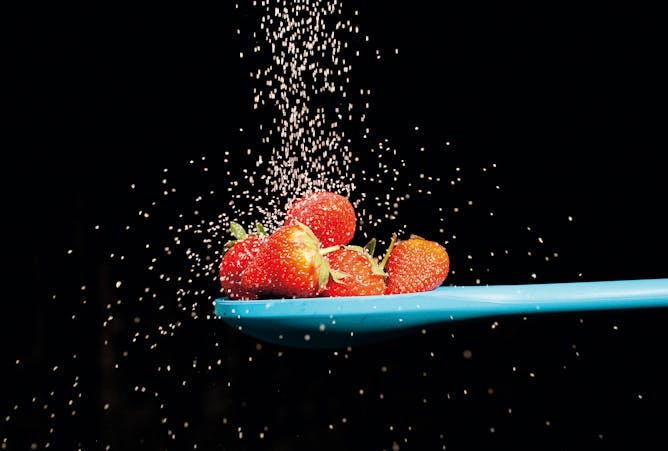|
If you’ve given up sugar for January and are finding it a huge struggle, don’t be too hard on yourself. Our brains are hardwired to like the stuff. As part of a deep dive into the science of sugar in the latest episode of The Conversation Weekly podcast, Stephen Wooding explains that humans have a deep-seated attraction to sugar that’s been an important advantage throughout evolutionary history. The problem is, now sugar is so readily available, he says these
cravings are ancient relics that “belong in a museum”. Eating too much sugar can be bad for both your long-term health – and your brain.
But, hold it right there. Not all sugar is bad for you. Physician Jennifer Rooke points out that our bodies need sugars to operate. What’s more important is where those sugars come from, with fruits and vegetables being a good source and refined sugars ones to always avoid, not only during those first virtuous days of January.
|

Daniel Merino, The Conversation; Gemma Ware, The Conversation
Plus, a lawyer explains the legal battle over Canada’s discriminatory First Nations child welfare system. Listen to The Conversation Weekly.
|

Jennifer Rooke, Morehouse School of Medicine
Sugar gets a bad rap, but exactly which sugar is meant? Nutrient-dense sweet ripe fruits are a far cry from refined table sugar – and their differences can have big health implications.
|
|
|
-
Emily Swaby, The Open University
The fossil of a gigantic ichthyosaur was recently discovered in the UK. It wasn’t the only creature lurking in the Jurassic oceans.
-
Maureen Ferran, Rochester Institute of Technology
CORBEVAX is anticipated to significantly expand vaccine access to people in low- and middle-income countries.
-
Sally Warner, Brandeis University
Tsunamis aren’t just bigger-than-average waves. Triggered by undersea earthquakes or volcanic eruptions like the one in Tonga, they are fast, massive and potentially destructive. Here’s why.
-
Daniel Eizenga, Africa Center for Strategic Studies
Democracy is messy. It facilitates change, but through an imperfect process of self-correction. This requires patience, engagement, and commitment.
|
|

Marcin Kaczmarski, University of Glasgow; Kasia Kaczmarska, University of Edinburgh
The closer Ukraine’s ties with the west – especially the US – the more aggressive Russia’s reaction as it continues to pursue regional dominance.
|
|
|
-
Jenny Graves, La Trobe University
The monumental Earth Biogenome Project has galvanised hundreds of geneticists and bioinformaticists from all over the world.
-
Paul Whiteley, University of Essex
Polling trends suggest more letters could make their way to the 1922 Committee.
|
|